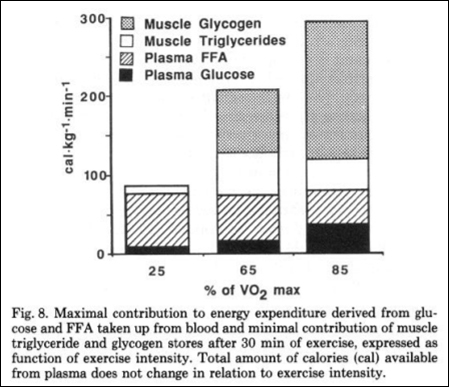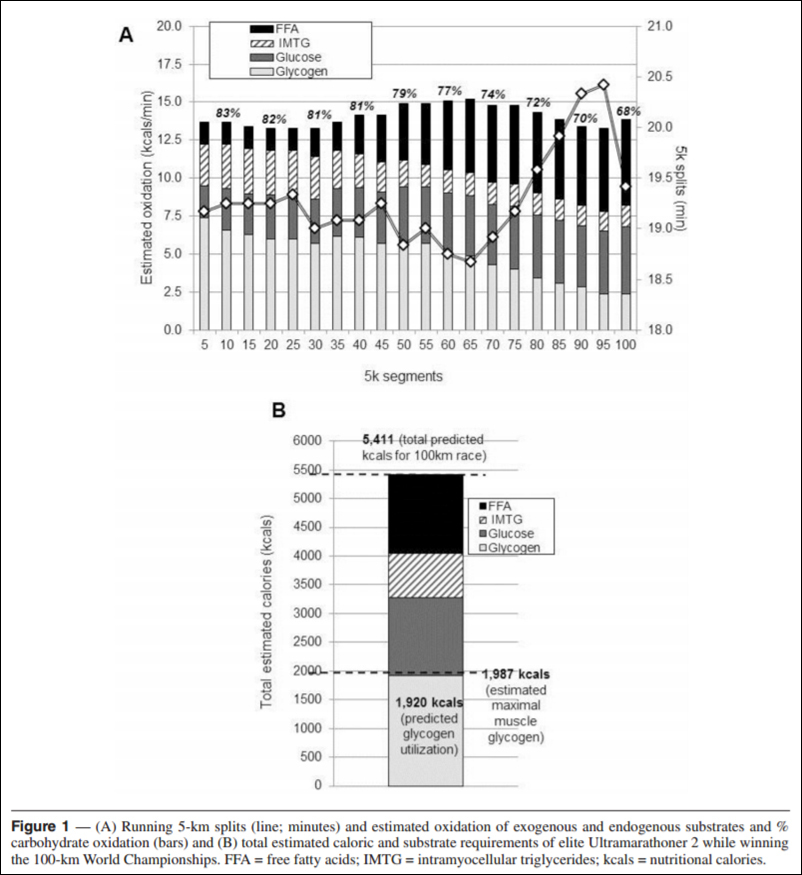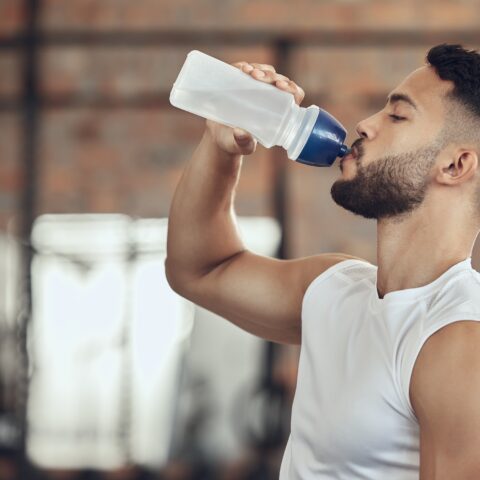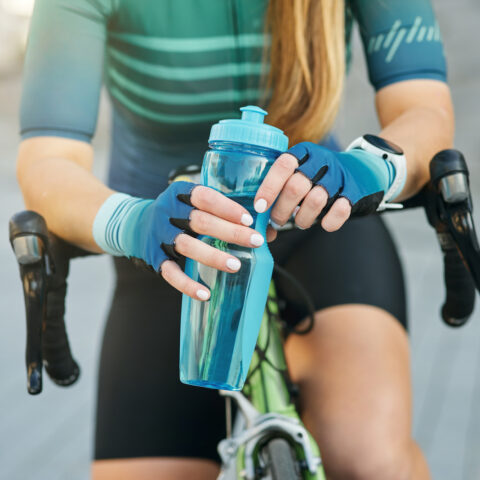The Endurance Training Dilemma: High Carb vs. Low Carb

Endurance athletes train hard and train often. Regardless of whether you’re an elite competitor or trying to achieve a new personal best, maximizing your recovery and performance with the right nutrition plan is an absolute “no-brainer.” The problem is, with so much conflicting information out there, how can you find the best approach to meet your goals?
Traditionally, endurance athletes have focused on high-carb diets and gels during exercise to fuel workout performance. However, recently more and more athletes eating low-carb, high-fat (LCHF) and ketogenic diets have promoted the use of fat as the ideal fuel source by dramatically reducing carbohydrate intake.
There are experts on both sides of the high-carb vs. low-carb debate, making it a fine line to tread. How are you supposed to determine the best strategy for you? The answer is an individualized approach to your nutrition.
For elite or professional athletes, the goal is very straightforward… win. Achieving the best possible performance is the target and nutritional strategies are all geared toward achieving that goal. Sometimes, this can be in opposition to promoting health. For example, using large quantities of simple sugars during exercise is a highly effective strategy to maintain high-intensity work output.
However, the chronic ingestion of simple sugars over time can have detrimental effects on things like insulin levels, gut health, and inflammatory status. For recreational or amateur athletes, is your primary goal to complete a personal best time, or is it equally as important for you to lose weight and improve your health? If the answer to the latter is “yes,” then you need a different strategy for how to best fuel your body.
Fueling for Elite Endurance Performance
Elite level runners and cyclists move fast. They’re working at a very high exercise intensity, and the research is clear—as exercise intensity increases so does the body’s reliance on carbs for fuel (see Figure 8 below). (1)

Stephen Phinney’s research showed that fat-adapted ketogenic athletes could burn more fat for fuel than non-keto adapted athletes, however this occurred at low exercise intensities (i.e., 65-70%), not the high intensity of elite competition. (2)

Finally, research from the Canadian Sport Institute highlighted the breakdown of macronutrient utilization during ultra-marathon competitions (races 100-miles or more) by elite-level runners. Researchers found all athletes practiced fueling strategies that maximized carb intake during competition, which is congruent with the contemporary evidence-based recommendations. (3)
Now there is emerging evidence to show that training in a low-carb or fasted state (i.e., Train Low or Sleep Low strategies) can induce favorable changes in fat metabolism for high-level athletes. (4,5,6) The research reveals as little as five days of training on a LCHF diet can reboot the muscle and augment fat-burning capacity, and this persists despite carbohydrate intake during exercise. (6) Therefore, LCHF can be an effective strategy for elite athletes to employ during specific training days or training blocks to improve performance.
However, it’s important to note that chronic low-carb or very low-carb (i.e., a ketogenic diet) intake can reduce pyruvate dehydrogenase in working muscles—an enzyme that’s essential for the effective metabolism of carbohydrates for fuel. (6) Not ideal if performance is your goal.
Fueling for Recreational Performance & Weight Loss
Many of my clients who decide to run a 10K, marathon, or race their bike at a recreational level are doing so to improve their health, lose weight, and connect with like-minded people. When this is their goal, it creates a different context from elite performers and requires a different nutritional strategy. For example, it’s not uncommon to see overweight clients, who train months for a marathon or long bike race, fail to lose any body fat despite logging hours and hours of training.
In this population, the addition of more simple sugars before and/or during training, as well as the consumption of a moderate- to high-carb diet can easily lead to a caloric excess and chronically elevated insulin levels, inhibiting their capacity to burn fat effectively for fuel. In terms of health, chronically elevated insulin levels can also significantly increase the risk of all chronic diseases. (7)
Rather than using a black-and-white approach, reassess your goals and identify your number-one priority. If weight loss is your goal, alongside friendly competition, then following the same recommendations given to elite athletes is likely going to be a major roadblock. A lower carbohydrate diet may be your path to success.
If performance is your goal, adopting low-carb feedings prior to specific training bouts or phases may provide benefits, however there is a lack of evidence to show a clear benefit to low-carb fueling during endurance competition. In short, carbs are still king on race day.
In the end, whether you’re an elite endurance performer or recreational enthusiast, tailoring your nutrition approach will yield the greatest results, whichever side of the high-carb vs. low-carb fence you land on.
References
1) Romijn, J et al. Regulation of endogenous fat and carbohydrate metabolism in relation to exercise intensity and duration. Am J Physiol. 1993 Sep;265(3 Pt 1):E380-91.
2) Phinney, S et al. Capacity for moderate exercise in obese subjects after adaptation to a hypocaloric, ketogenic diet. J Clin Invest. 1980 Nov;66(5):1152-61.
3) Stellingwerff, T. Competition Nutrition Practices of Elite Ultramarathon Runners.
Int J Sport Nutr Exerc Metab. 2016 Feb;26(1):93-9.
4) Marquet L et al. Enhanced Endurance Performance by Periodization of Carbohydrate Intake: “Sleep Low” Strategy. Med Sci Sports Exerc. 2016 Apr;48(4):663-72.
5) Volek J, Noakes T, Phinney S. Rethinking fat as a fuel for endurance exercise. Eur J Sport Sci. 2015;15(1):13-20.
6) Burke L. Re-Examining High-Fat Diets for Sports Performance: Did We Call the ‘Nail in the Coffin’ Too Soon? Sports Med. 2015 Nov;45 Suppl 1:S33-49.
7) Menke A et al. Prevalence of and Trends in Diabetes Among Adults in the United States, 1988-2012 JAMA. 2015;314(10):1021-1029.




